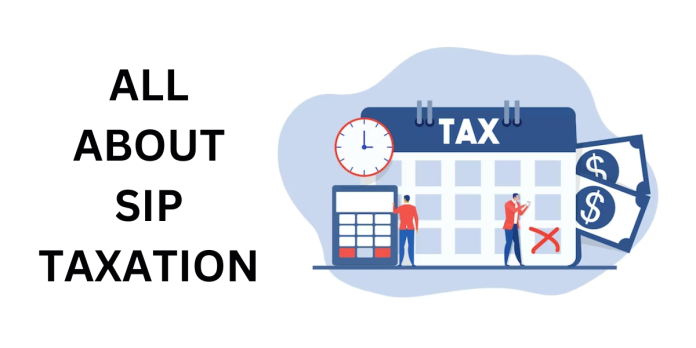Investing in mutual funds through Systematic Investment Plans (SIPs) offers a convenient and disciplined approach to building wealth over time. However, amidst the allure of potential gains, it’s crucial to understand the taxation implications associated with SIP investments.
Let’s delve into the intricacies of SIP taxation to ensure investors are equipped with the knowledge to make informed financial decisions.
Capital Gains Tax
SIP investments in equity mutual funds are subject to capital gains tax upon redemption. When your investment grows, the profit incurred is taxable. For instance, if you invest Rs 50,000 in an equity fund and it appreciates to Rs 60,000, the Rs 10,000 profit is subject to taxation.
Short-Term Capital Gains (STCG)
Gains from units held for less than one year are considered short-term capital gains (STCG) and are taxed at a flat rate of 15%. For example, if you realise a Rs 10,000 profit from units held for less than a year, you’ll owe Rs 1,500 in STCG.
Long-Term Capital Gains (LTCG)
Units held for over a year qualify for long-term capital gains (LTCG). LTCG exceeding Rs 1 lakh in a financial year is taxed at 10%. If you sell units held for more than a year with a Rs 10,000 profit, you’ll owe Rs 1,000 in LTCG tax.
Tax Exemption
LTCG up to Rs 1 lakh in a financial year is exempt from taxation. Beyond this threshold, a 10% tax applies. For instance, if your LTCG amounts to Rs 90,000, it remains tax-free, but if it reaches Rs 1,10,000, you’ll owe Rs 1,000 in LTCG tax.
Individual SIP Installments
Each SIP instalment is treated as a separate investment for tax purposes. The holding period for taxation is calculated individually for each instalment. This means that the tax treatment varies depending on the specific holding period of each instalment.
First In First Out (FIFO) Principle
When selling units, the FIFO principle is applied. This means that the units purchased first, corresponding to the earliest SIP instalments, are considered sold first for calculating capital gains.
Tax Rates Independent of Income Tax Slab
It’s important to note that equity mutual fund gains are not linked to your income tax slab. The tax rates for capital gains are fixed, irrespective of your income level, providing a standardised approach to taxation.
Taxation of Debt Funds
Unlike equity funds, gains from debt funds are added to your income and taxed at your applicable income tax slab rate, regardless of the holding period. For instance, if you realize a Rs 10,000 gain from a debt fund and fall into the 30% tax slab, you’ll owe Rs 3,000 in taxes.
Read: Debt Funds: A Safe Haven For Investors In Volatile Markets
Understanding SIP taxation is essential for investors to accurately assess the returns on their investments and plan their tax liabilities accordingly. By grasping the nuances of SIP taxation, investors can make informed decisions aligned with their financial goals and tax strategies. It’s advisable to consult with a financial advisor for personalized guidance tailored to your specific investment portfolio and tax situation.


